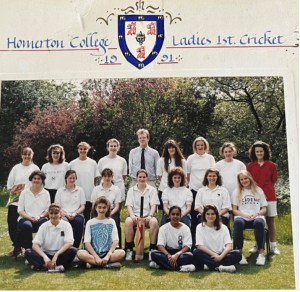4 May 2023
Embracing Belonging and the Power of Difference
To commemorate World Cultural Diversity Day, this instalment of our thought-provoking series features Tushi Gorasia, Headteacher at Hendon Prep School in the UK. Drawing on her own personal experiences, Tushi shares her unique perspective on the theme of belonging. Join us as we explore the power of diversity and the importance of creating a sense of belonging in our global community this month.
Growing up in 1970s England as a bright, British-born Indian, 2nd generation female who spent most of my student life feeling like an outsider is the headline reason as to why I am so committed to spreading the understanding of why it is important to create school environments that are safe, welcoming and inclusive for all, students and staff. 
The reason I cite ‘bright’ is because if I hadn’t been considered too clever to stay in my age-related year group at primary school, or hadn’t got into a State Grammar Senior school or hadn’t made it into Cambridge University, I may not have spent so much time feeling so ‘different’ to my peers who started life in Bounds Green, Haringey, London.
But I also know how fortunate I was. Being seen as bright overrode my parents’ socio-economic position, where we lived, the colour of my skin, religion, sex and culture. I seized the opportunities this gave me. By studying English with Education and training to be a teacher, I swam a course that was different at that time to those who looked like me.
Throughout those formative years as a student in schools and college, and during my teaching practices in various all-white schools, the value of feeling included as a teacher and as a student, and what this might look like were sparked. And, although, I had grown up without role models who looked like me in the books I read, TV and sporting teams I watched, teachers who taught me or Headteachers I admired, I know how much better and accepted I, and many others, might have felt if inclusion in its broadest sense, was a priority in schools.
I began to consider:
- Why it is vital that all schools regardless of what their community looks like embrace the notion of belonging.
- Why it is important that all students and staff feel accepted and valued.
- Why role models and representation are so important.
Embracing belonging and the power of difference requires more than just acknowledging and celebrating diversity in our schools. It requires active listening, empathy, and a willingness to learn, adapt, evolve and to try to understand the lived experiences of those around us. We must also be willing to challenge our own biases and prejudices – not just as a tick box but in order to truly create a more equitable and inclusive society. Through education and leadership, we can create spaces where everyone, students and staff, feels like they belong and can thrive. We must lead by example, and if that means paving the way, starting with small changes or being inspired by others, as leaders we should be open to understanding true inclusion.
To feel valued, represented and safe not just as a teacher in a school, but for all staff members ensures that our students are also actively encouraged and supported to feel that sense of belonging. This in turn enhances well-being, a global perspective and a holistic approach to education which is in turn linked to academic attainment and a well-adjusted, school community prepared for life in our ever changing world.
World Cultural Diversity Day – 21st May celebrates not only the richness of the world’s cultures, but also the essential role of intercultural dialogue for achieving peace and sustainable development.

